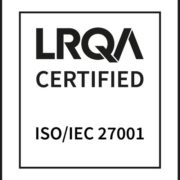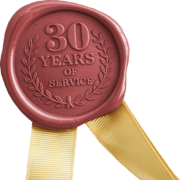C-Suite Insights: Driving CRM Success from the Top Down
The success of a CRM implementation doesn’t rest solely on technology itself; it hinges significantly on the support and involvement of the executive leadership
For organisations of any kind, driving CRM success from the top down is not just beneficial—it’s essential.
The Strategic Role of the C-Suite in CRM Success
Executive leaders play a pivotal role in setting the vision and direction of an organisation. Their endorsement and active participation in CRM initiatives can make a substantial difference in the adoption and effectiveness of the system.
Why C-Suite Involvement Matters:
- Sets the Tone: Leadership commitment signals to the entire organisation that CRM is a strategic priority.
- Allocates Resources: Executives have the authority to allocate the necessary budget, personnel, and technological resources.
- Drives Cultural Change: Leaders can champion the cultural shift required for successful CRM adoption.
- Ensures Alignment: Aligns CRM objectives with overarching business goals and strategies.
Strategies for C-Suite Leaders to Drive CRM Success
- Articulate a Clear Vision
Executives should define and communicate a compelling vision for how the CRM system will benefit the organisation.
- Set Specific Goals: Outline clear, measurable objectives such as improving customer satisfaction scores or increasing sales revenue.
- Communicate Benefits: Explain how the CRM will enhance not just organisational performance but also individual roles and responsibilities.
- Lead by Example
Actions speak louder than words. When executives actively use the CRM system, it encourages others to do the same.
- Regular Usage: Incorporate CRM data into strategic meetings and decision-making processes.
- Showcase Successes: Highlight instances where CRM insights have positively impacted business outcomes.
- Foster a Customer-Centric Culture
Shift the organisational mindset to prioritise customer relationships and data-driven decision-making.
- Promote Collaboration: Encourage cross-departmental use of the CRM to break down silos.
- Reward Engagement: Recognise and reward teams or individuals who effectively utilise the CRM system.
- Invest in Training and Development
Ensure that all staff have the necessary skills and knowledge to maximise the CRM’s capabilities.
- Comprehensive Training Programs: Provide initial and ongoing training tailored to different user roles.
- Mentorship Opportunities: Pair less experienced users with CRM champions within the organisation.
- Monitor Progress and Adapt
Regularly review CRM performance metrics and be willing to make adjustments as needed.
- Data-Driven Insights: Use CRM analytics to inform strategic decisions and identify areas for improvement.
- Feedback Mechanisms: Establish channels for employees to share their experiences and suggestions.
- Allocate Adequate Resources
Successful CRM implementation requires sufficient investment.
- Budget Allocation: Ensure that financial resources cover not just the software but also integration, training, and support.
- Technological Infrastructure: Invest in complementary technologies that enhance CRM functionality, such as mobile access or AI tools.
- Address Resistance and Challenges
Be proactive in identifying and overcoming obstacles to CRM adoption.
- Open Dialogue: Encourage open communication about concerns or difficulties staff may be experiencing.
- Change Management: Implement structured approaches to manage the transition and minimise disruption.
The Impact of Top-Down Leadership on CRM Adoption
When the C-Suite is actively involved in CRM initiatives, the organisation is more likely to experience:
- Higher Adoption Rates: Employees are more inclined to embrace the CRM when they see leadership’s commitment.
- Improved Data Quality: Consistent usage leads to more accurate and comprehensive customer data.
- Enhanced Performance: Teams can leverage CRM insights to improve efficiency and customer interactions.
- Greater ROI: The organisation realises a higher return on investment through effective utilisation of CRM capabilities.
By articulating a clear vision and by leading by example, executive leaders can drive meaningful change. This top-down approach not only facilitates smoother CRM adoption but also propels the organisation towards achieving its strategic objectives.
Is your organisation ready to unlock the full potential of your CRM system? Our Melbourne-based team specialises in guiding executive leaders through successful CRM initiatives. Contact us today to learn how we can support your journey towards greater efficiency and customer engagement.



